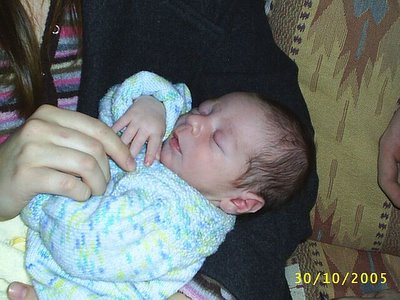So I read
this article this morning on work on
GNOME optimization and they mention the "GNOME file chooser". Lo and behold, they actually mean the
GTK+ filechooser, something available in any GTK+ application, not just in GNOME's. Perhaps it's a
pedantic distinction, but I think it's an important one. Linux users should have a clear description of how things work (not to say that said description should be complicated) and GNOME holds too important a position to be saying inaccurate things, in my opinion.
I don't think I'd care as much, but this isn't the first time I've seen GNOME saying such things.
This 2.12 preview lists Evolution as a "mail client for GNOME", but I happily use it when not in GNOME. And this leads me to a sore point with GNOME apps.
Many GNOME apps carry extra dependencies that a non-GNOME user wouldn't have. Often, these dependencies are unnecessary. A popular example lately is
Evince, which
relies on gnome-vfs.
Nautilus, GNOME's file manager, also controls the desktop, but the default behavior of running the "nautilus" command is to open a file manager window and, if not already, take over the desktop. There's a flag (--no-desktop) and a GConf setting that can be set, but in my opinion, the default is a poor choice. Better would be to have "nautilus --desktop" run the desktop process and have "nautilus" only open a file manager window. The GNOME startup settings are very good, and you can have the desktop started therein.
This kind of development and publicity, in my opinion, is telling. It seems GNOME developers are developing for GNOME. They have a very respectable integrated desktop, but these types of things belie a narrow-minded attitude that hurts Linux as a whole in my opinion. With Linux being generally modular--customizable from the kernel up, chock full of functionality whether on the command line or in a GUI (of which you have many choices), and many choices of applications to suit your need and taste, etc.--I think it's frustrating to see GNOME be so self-oriented.
Rather, I prefer Xfce's attitude towards their software; they make things such that the user can use any piece of their choosing in any environment. No unnecessary dependencies, because the user's choice is valued. In fact, thinking about it, I'd say that whereas it seems that GNOME develops for GNOME, Xfce develops for the user. For example,
Thunar, Xfce's upcoming file manager (being developed currently), looks very much like Nautilus and will provide comparable functionality, but performs faster (in my experience, and I understand that this is not a completely fair comparison at this point) and has a shorter dependency list.
Xfmedia, a media player that uses
Xine, doesn't do as much as GNOME's default,
Totem, but performs better (when using
GStreamer or Xine) and has a simpler UI. Of course, there's also the fact that
Xfce's window manager, perhaps the most important piece of the desktop puzzle, is incredibly more useful and elegantly designed than GNOME's metacity.
I really appreciate GNOME's efforts on the desktop and recommend them to any person new to Linux, but as someone who's been around for a little while, I'm just a bit disappointed.
Disclaimer: I do not represent Xfce in any way (though I use it primarily and enjoy it) and in fact,
I run GNOME's panel and volume manager on my Xfce desktop because I like them.





